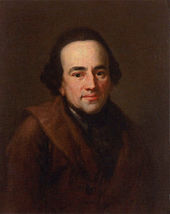Jewish political movements
| Part of a series on |
| Jews and Judaism |
|---|
Jewish political movements refer to the organized efforts of
Birth of Jewish political movements

Since Jews were excluded as outsiders throughout Europe, they were mostly shut out of politics or any sort of participation in the wider political and social sphere of the nations in which they were involved until the Enlightenment, and its Jewish counterpart,
The changes caused by the Haskalah movement coincided with rising revolutionary movements throughout Europe. Despite these movements, only France, Britain, and the Netherlands had granted the Jews in their countries equal rights with gentiles after the French Revolution in 1796. Elsewhere in Europe, especially where Jews were most concentrated in Central and Eastern Europe, Jews were not granted equal rights. It was in the revolutionary atmosphere of the mid-19th century that the first true Jewish political movements would take place.[citation needed]
Emancipation movements
During the early stages of
Still, in the face of persistent
Socialist and Labor movements
Frustration with the slow pace of Jewish acceptance into European society, and a revolutionary
The more intellectual socialist movements of the Jews in Western Europe never gathered steam as emancipation took hold. In Eastern Europe and Russia, however, the Bund – the
Zionist movements
The aim of Zionism was to set up a secular state in the vicinity of the Biblical

As the 19th century wore on, the persecution of the Jews in Eastern Europe where emancipation had not occurred to the extent it did in Western Europe (or at all) increased. Starting with the state-sponsored massive
In reaction to the first,
Folkists
In the aftermath of the 1905 pogroms in Russia, the historian Simon Dubnow founded the Folkspartei (Yiddishe Folkspartay) which had some intellectual audience in Russia, then, in independent Poland and Lithuania in the 1920–1930s where it was represented as well in the Parliaments (Sejm, Seimas) as in numerous municipal councils (incl. Warsaw) till in the late 1930s. The party did not survive the Shoah, the Holocaust.[citation needed]
Territorialists
The territorialists, who had split from the Zionists after the Seventh Zionist Congress in 1905, called for creation of a sufficiently large and compact Jewish territory (or territories), not necessarily in the
Anarchists
While the Jews in general played an important role in the international anarchist movements, many Jewish anarchists actively promoted
There was some intersection between the Jewish anarchist,
Modern Jewish political movements
Zionism continues to be the central trans-national political movement of most Jews, although it has split into a variety of branches and philosophies that span the political spectrum from left-wing to right-wing. Jews are also active in government in many of the countries in which they live, as well as in Jewish community organizations that often take political positions.[citation needed]
In Israel
Outside Israel
In the 20th century, Jews in Europe and the Americas traditionally tended towards the
There are also a number of Jewish secular organizations at the local, national, and international levels. These organizations often play an important part in the Jewish community. Most of the largest groups, such as
The 21st century has brought changes in the political leanings of Jewish communities in the diaspora. In the U.S. and Canada, the two largest Jewish diaspora communities, voters are shifting from liberal to more conservative leanings. In 2011, an Ipsos Reid exit poll of voters in the federal election of Canada found that 52 per cent of Jewish voters supported the Conservatives, 24 per cent the Liberals and 16 per cent the NDP, reflecting " an enormous shift in voter preference among Canadian Jews." The shift appears to reflect an alignment with Israeli Prime Minister Benjamin Netanyahu's right-wing coalition government and its views on Israel's security.[2] The Jewish community in Great Britain is also leaning conservative in the 21st century as a poll published by the Jewish Chronicle in early 2015 shows. Of British Jews polled, 69% would vote for the Conservative Party, while 22% would vote for the Labour Party. This is in stark contrast to the rest of the voter population, which according to a BBC poll had Conservatives and Labor almost tied at about a third each. Jews have typically been a part of the British middle class, traditional home of the Conservative Party, though the number of Jews in working class communities of London is in decline. The main voting bloc of poorer Jews in Britain now, made up primarily of ultra-Orthodox, votes "en masse" for the Conservatives. Attitudes toward Israel influence the vote of three out of four of British Jews.[3][4]
See also
- Judaism and politics
- Jewish right
- Zionism
- Cosmopolitanism
- Jewish Question
- Union Organizer
References
- ^ Weinberg, Robert. The Revolution of 1905 in Odessa: Blood on the Steps. 1993, p. 164.
- ^ How the political shift among Jewish voters plays in Canada, The Globe and Mail, 28 September 2011
- ^ Huge majority of British Jews will vote Tory, JC poll reveals The JC.com, 7 April 2015
- ^ How Ed Miliband Lost Britain's Jewish Voters The Jewish Daily Forward, 8 April 2015
- David Vital, A People Apart: A Political History of the Jews in Europe 1789-1939, Oxford University Press, 2001.
- A special issue of the journal Labyrinthe. Atelier interdisciplinaire (in French) has been devoted to the issue: Des Juifs contre l'émancipation. De Babylone à Benny Lévy [Jews Against Emancipation: From Babylon to Benny Lévy] (2007). Editorial available online.
External links
- Israel's Judaic Politics: Profiling the Predominantly Religious Jewish PartiesIslamOnline.net, retrieved on 19-03-2009.
- My Jewish Learning on Jewish Political Movements
- URJ Emancipation information
- From Bolshevism to Bush: Exploring the Political Trajectory of the Jewish People by Walter Leon, June 25, 2009
